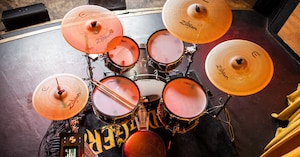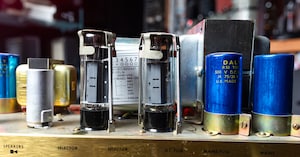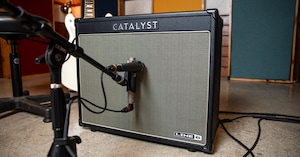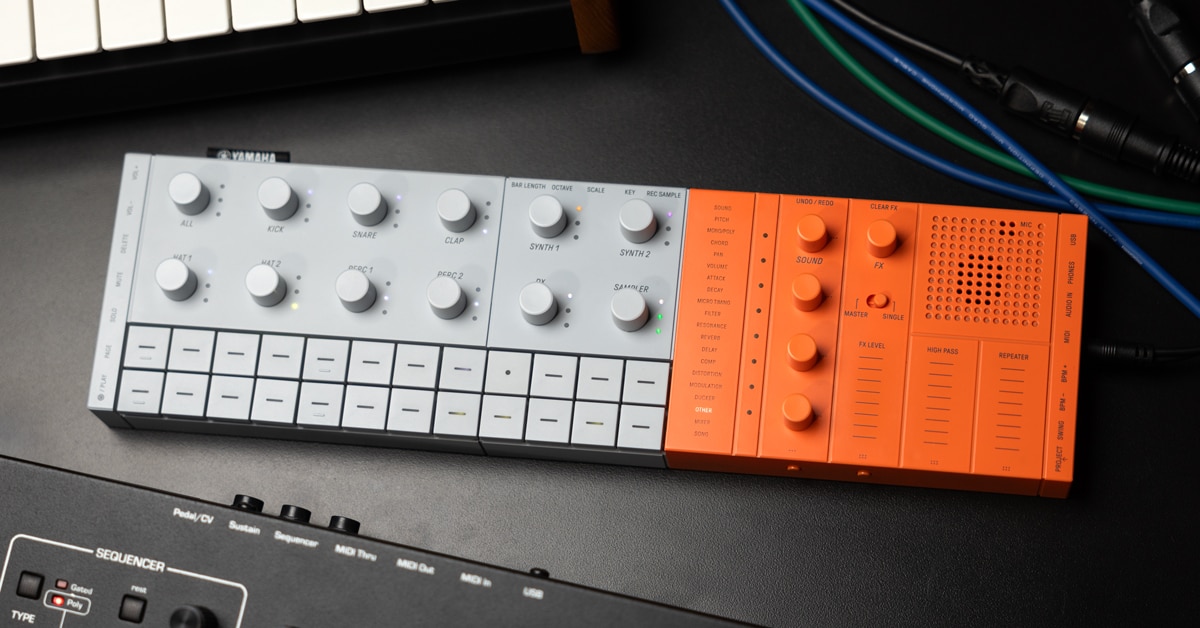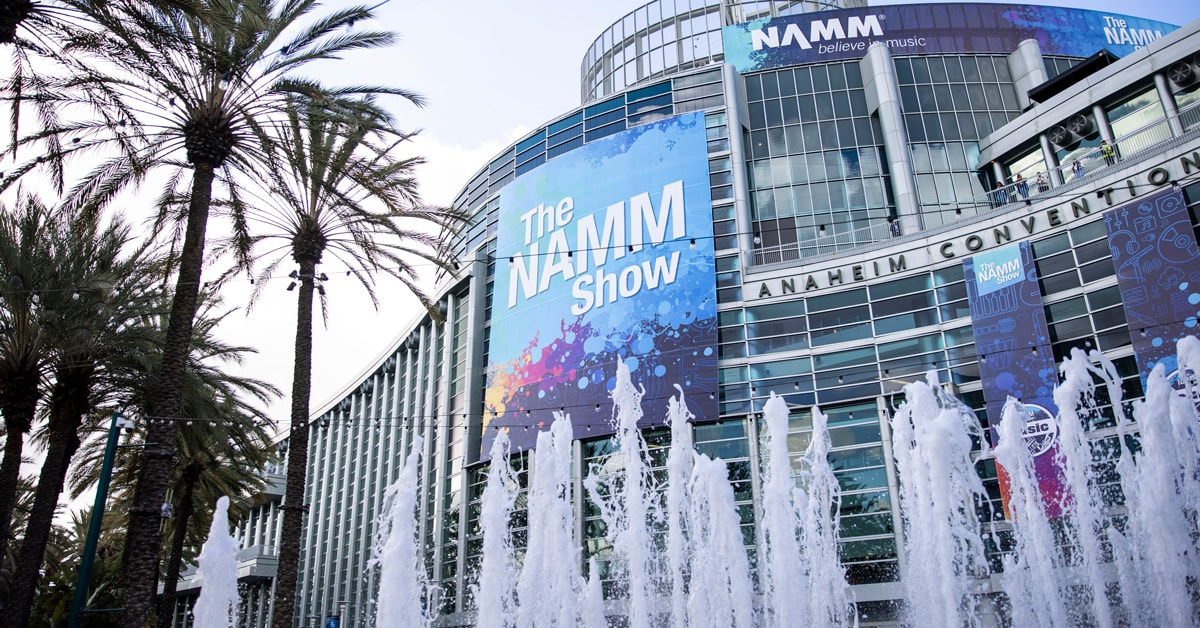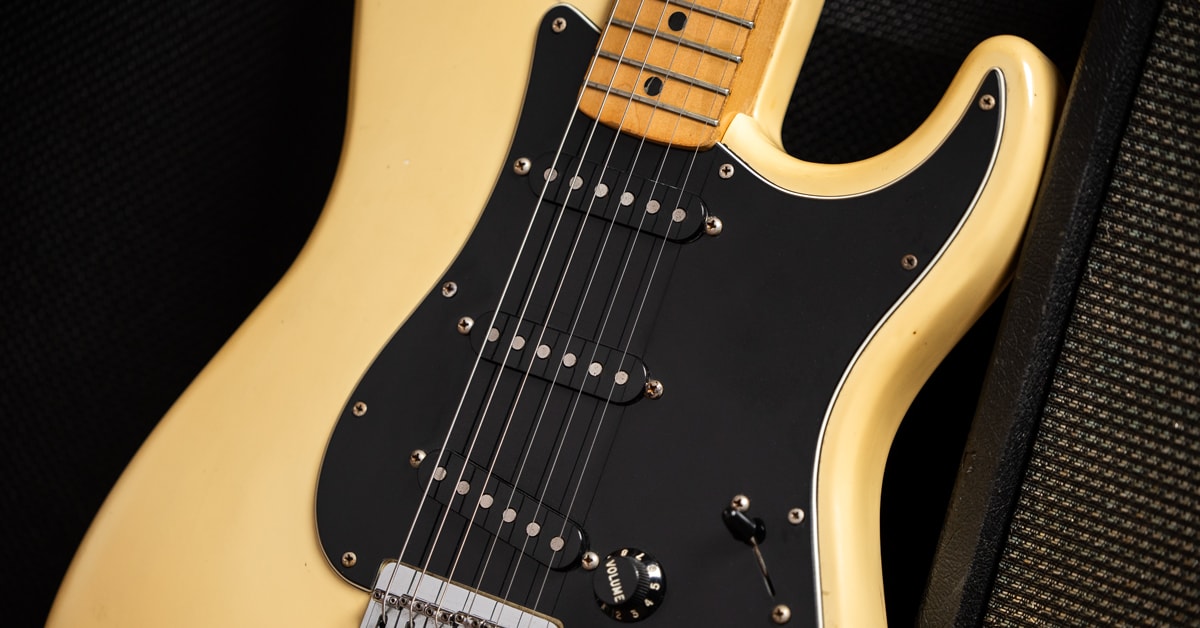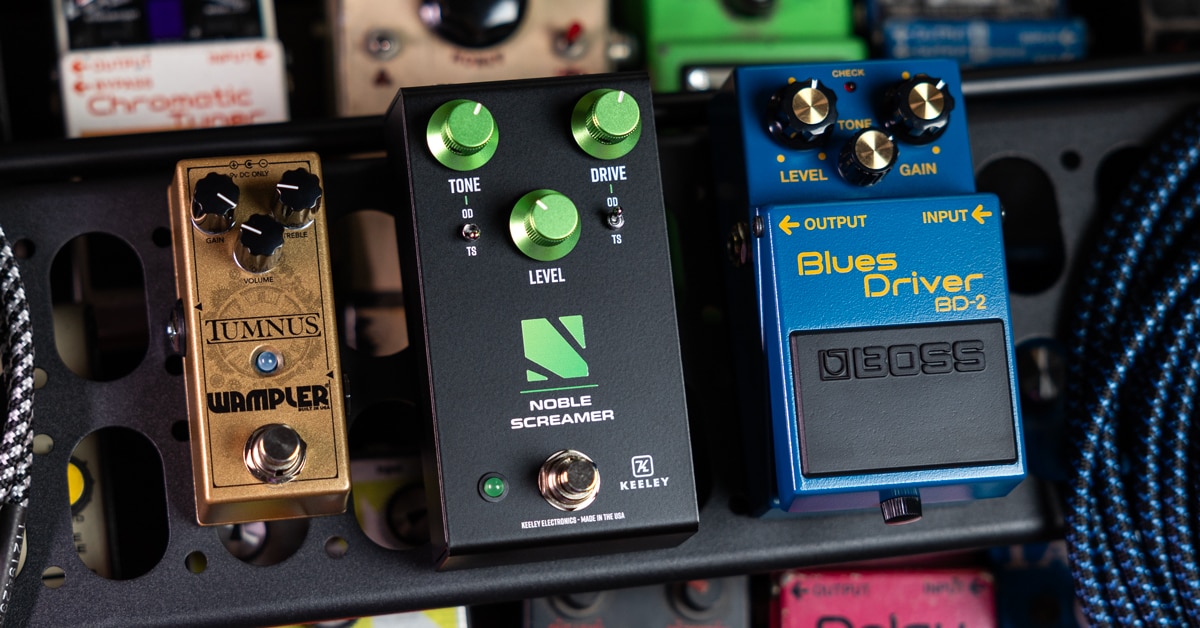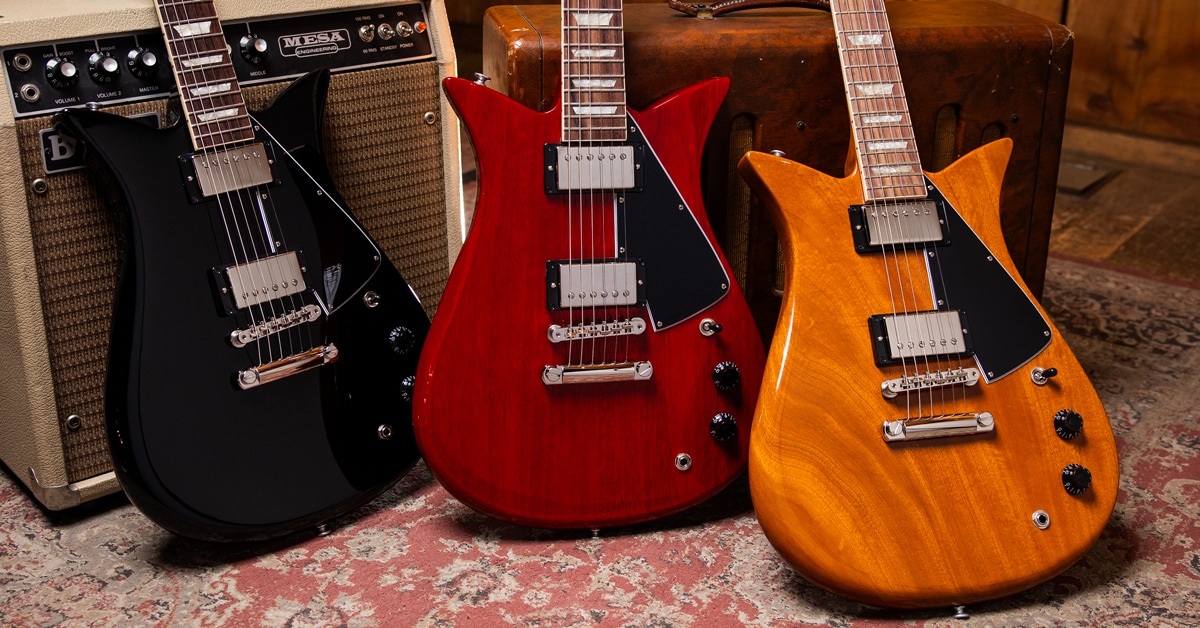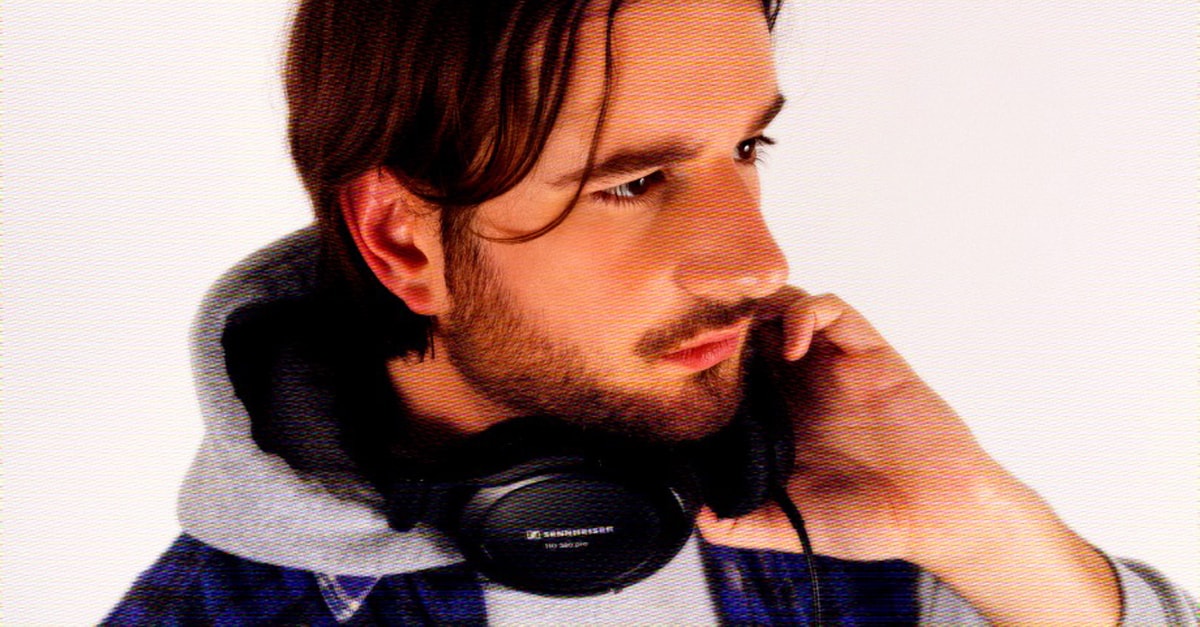DJ and producer Alex Chapman grew up in Chicago with a deep passion for music and sharing it with others. Influenced by a growing EDM scene and evolving music production tech, Chapman began DJing in college as a way to bring people together. Since then, he’s released fun and energetically catchy dance tracks, including his most recent, “Horsey,” featuring pop sensation Kim Petras. We caught up with the dance-pop artist DJing at a Pride Eve event, where we spoke about his early musical influences, why individual expression matters and how music drives inclusion and representation.
What first motivated you to start DJing?
Alex Chapman: I’ve always loved music, and I think I’ve always tried to figure out how to make it fit into my life. I used to play classical guitar. I used to do the high school choir thing, and I loved putting together playlists. I also worked in music journalism a little bit. I think I grew up in a really cool era for EDM. I got to see a lot of acts when they were first kind of emerging. People like The Bloody Beetroots, Calvin Harris, Skrillex, A-Trak and so many more. I realized that it had become this huge medium, and I was really attracted to it. So, I started DJing in my college dorm room for my friends. I would use Virtual DJ on my desktop, and eventually, I realized I could get people to come around if I was DJing. So, it kind of just snowballed from there.
You mentioned when you first started you were using Virtual DJ. What other musical tools really unlocked something for you creatively?
AC: The gear that unlocked the next level for me were CDJs. Once I stopped relying on DJing in the box internally, I realized that there was more to do, and it felt more expressive. I didn’t have to carry around my computer with me all the time, which was a huge plus because carrying your computer around a nightclub is really annoying (laughs). I’ve tried the newer Pioneer DJ CDJ-3000s. I feel old when I use them, but they’re awesome. I mean, the technology just keeps pushing forward. To be able to use a touchscreen, it’s just awesome. To me, when I saw people use CDJs, it was very aspirational. So, whenever I get to use them, it still feels special, even though it’s every day for me now.
What artists inspired you most when you first felt the tug to DJ?
AC: I grew up in Chicago, and I was in a scene inside a scene as a spectator, a young audience member. One of the big groups I would follow around was Flosstradamus, and they were like superheroes to me. So, I was really inspired by them. I think they were some of the first DJs I ever saw do mashups. Also, The Hood Internet was really big for me, seeing people fuse different genres together. Because I think that’s what Chicago was all about, a lot of cross pollination. That’s something I still carry with me now in my DJ style.
And what DJs do you really respect now; especially as they represent the LGBGTQ+ community?
AC: Love Honey Dijon–I’ve seen her DJ a bunch of times when I lived in New York. I played a lot of parties from this party promoter Ladyfag, and Honey Dijon used to DJ her parties a lot too, and still does. She’s so fucking good. I think LP Giobbi is amazing. She’s just this powerhouse musician/DJ that is taking piano house to this next level, and it’s really exciting to see. I mean, I’m sure there’s more, but that’s why we’re here. We’re trying to make more.
What’s your recommendation for people that are curious about DJing? What are your pointers for diving in? Where should they start?
AC: My advice would be to build up your catalog. Create your style with the music that you love. Get it all together. Organize it. Organizing is huge, and it’s very relieving when you do it. And don’t be afraid to take any gig. All my first DJ gigs were opening gigs. I would play for the first 30 minutes, and if there were five people there that liked it and stayed, then I had done my job. People would start to see me on flyers, and that would help me get from one gig to another. So, humble thyself and make sure you have the music to back up the set. You know, find those rare gems. Find those things that mean a lot to you, because if they mean a lot to you, chances are you’ll connect with other people who they mean something to, also.
My advice, technique-wise, would be, don’t let that stop you. Don’t let technical things that you see DJs do that you may not know how to do yet … don’t wait until you can do those things to DJ. Start and you learn as you go. You learn from being around other people and from the internet. I think the purpose of a DJ is to keep a party going, so as long as you can keep your transition smooth, and no one’s stopping dancing or stopping having a good time, then you’re doing your job.
How did you go from DJing to making your own music?
AC: The leap to making music myself was definitely a long pilgrimage to figuring out that I should be an artist. I was always a little scared to fully dive into that world because it’s very vulnerable, but it’s what I’ve always wanted to do. I love making music with other people. I love playing other people’s music. But creating my own music is the best feeling in the world.
Let’s talk about your new track “Horsey.” What was the vibe you were after? And give us a little bit of insight into the production process and the making of the song.
AC: “Horsey” is my new song featuring Kim Petras. It is stupid as hell in the best way, and it’s my introduction as an artist to the world or whatever. It came together organically. My friend Harley and I were trying to come up with a good one-word concept that felt a little gay. And we landed on “horsey,” and we wrote this idea. I make most of my ideas in Logic. I produced the skeleton of the track, and then I got in with my collaborator, Zhone, who brought the track to life. He and I tried to create a song that felt like an EDM song but was sort of twisted inside-out. A little hyper pop, a little pop, a little EDM, a little everything we like—kind of like how I DJ. Just taking everything I like and putting it into a song. Kim Petras is on the vocal hook in a very classic hook fashion where she doesn’t say too much but she says just enough. I’m super stoked she’s on it. She killed it. Then, Aaron Joseph helped with the additional production and made it sound super smooth. We ended up with this song that I think is amazing, and hopefully, other people will too.
I do have some remixes coming out that I’m really excited about. I’m hoping that making official remixes becomes a big part of what I do, because I love flipping a song, taking something that I love and putting my own spin on it. Hopefully, lots and lots of Alex Chapman official remixes coming your way.
The dance floor is a place of honesty and vulnerability. There is a really unique and empowering feeling of both freedom and connection there. Can you speak to that power—either in your own experience as a DJ and controlling the room, or being out on the floor and experiencing it from that perspective?
AC: I love DJing because I’m a control freak. I love to create energy in a room, or be conducting the energy, and to be able to elevate the emotion and joy in a room. That is the coolest feeling in the world. So, I find a lot of solace and comfort, and it’s my happy place, being in the DJ booth. Because I feel like we’re all kind of on the same page if I can get it there. If I can create that feeling of us all communicating through having fun together in the space, then it’s the ultimate human connection. Not to be dramatic (laughs).
Often the arts—music in particular—is at the forefront of moving the culture forward by driving acceptance and celebrating individual voices. Can you speak to music’s ability to foster inclusivity and build community?
AC: I think music is the great connector. I was lucky enough before lockdown to travel Europe and tour there, and one of my biggest concerns was “are they going to like my style?” Because I’m so American. I’ve been out of the country, but I’m a Jew from Chicago. So, my style, it resides here. But, to see how well it translated, to see that I was understood and that my style was maybe even more well received in Europe than it was in the States … things like that, they are the proof that you need to know that music can take you anywhere and can help you communicate with anyone, whether you speak the same language or not.
In what ways has the music community evolved since you started DJing? Are there ways you’ve seen music lead to change?
AC: I’ve definitely seen music lead to amazing things. I think that the way we can all connect now through the internet. Even moreso post-lockdown after all of us having to communicate through the internet, become more familiar with how to livestream, how to use Twitch, how to play Zoom parties … all these different things. I think it creates this universal connection. The way we can throw music back and forth to each other now. The way you can see sets from anywhere in the world—and that being such a commonplace thing—is making it so we’re connecting even quicker. We’re getting to know each other musically even more. So, I think as long as we can keep learning different things through music and developing a greater understanding of each other, then music will always play a part in creating change.
What are your hopes for a more inclusive future music industry?
AC: A change I’d like to see in the music community is seeing more queer people in dance music. I think queer people and queer people of color are at the foundation of dance music, and I think that we should be celebrating that more. We should be looking for those voices, because they’re out there. There’s so much great talent that’s breaking through and getting discovered, and also carrying a lot of people into the next generation of music. I mean, I’m an artist, I’m a DJ and I’m also a queer person. I think those things are all connected. They’re all superglued together. So, when I see people that have those same identifiers, it’s a special thing. It’s something I’d like to see more and experience more, for sure.
Keep up with Alex Chapman.

